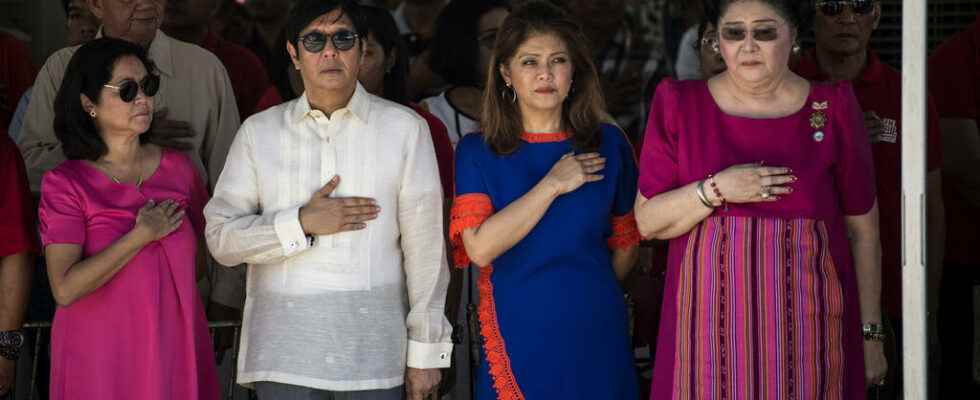The general elections in the Philippines are held on Monday, May 9. More than 18,000 mandates are up for grabs. Voters must choose the next president, the next vice-president, senators and deputies, provincial governors, and finally mayors and municipal councillors. A family affair.
Among the most popular candidates for the positions of vice president and president this year are names well known to Filipinos. Namely Sara, the daughter of current President Rodrigo Duterte, and Ferdinand “Bongbong” Marcos Jr.the son of former dictator Ferdinand Marcos.
If he is elected to the supreme office, as the polls predict, Marcos Junior will reinstall his powerful family clan at the top of the pyramid, 36 years after the popular uprising that overthrew his father.
The Philippine political scene has long been dominated by powerful families. But this clan system has prospered enormously over the past twenty years, especially at the local level. In the provinces, the number of governors belonging to large families rose from 54 to 80%.
A phenomenon that has only aggravated inequalities and limited economic development. This system continues in particular thanks to the power in place, explains on RFI François-Xavier Bonnet, associate researcher at the Institute for Research on Contemporary Southeast Asia (IRASEC).
President Duterte has always said that he is against political dynasties. But we can clearly see that his own family began their political power in Davao City. And after that, from the moment he became president of the Philippines, his children began to take positions at the national level. The Marcos family takes positions at the local and national level. Officially, there is an anti-political dynasty law, which must block the entry of families at national and local level. But in reality, this law was not passed. Congress is dominated by political families. Of course, they don’t want to saw off the branch they’re sitting on.
In this weaving of networks of influence, corruption and clientelism, Leni Robredo, fierce opponent of President Duterte and main adversary of Marcos Jr, is an exception. Apart from her late husband, a former interior minister, no other member of her family is involved in politics.
►Read again: In the Philippines, the presidential campaign kicks off
